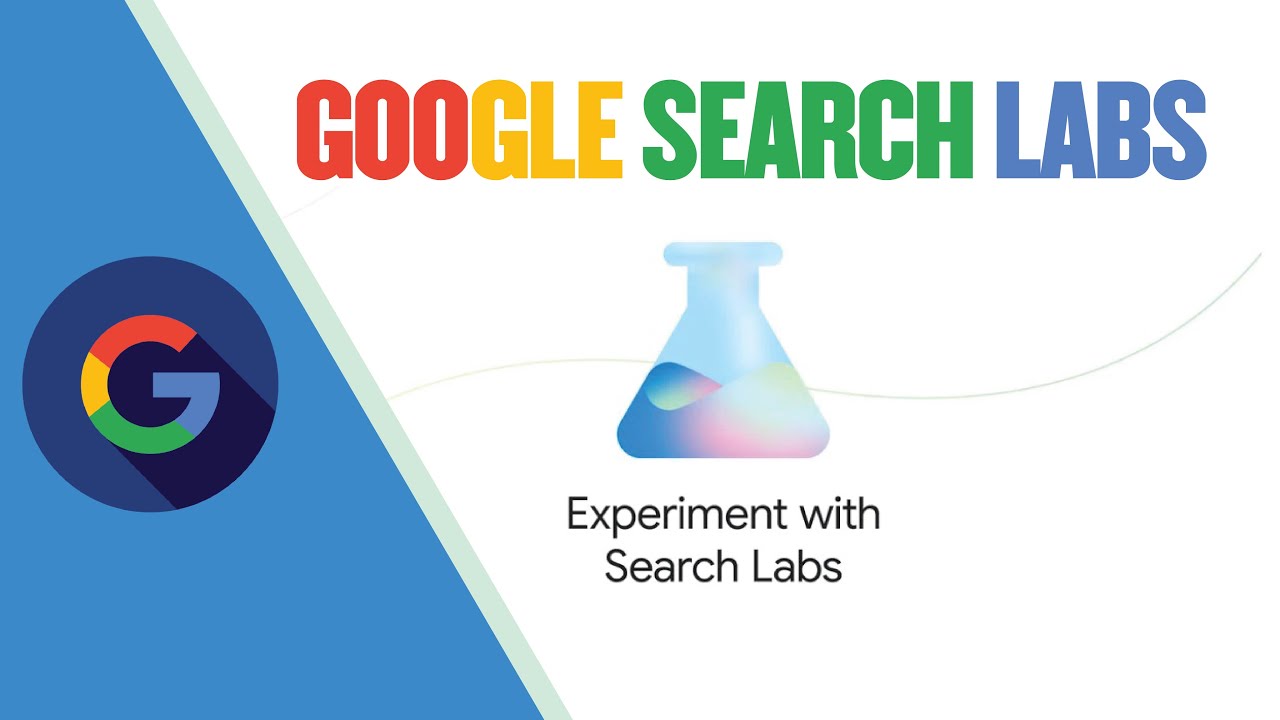Online marketing has undergone a profound transformation since its inception in the 1990s. What began as simple banner ads has evolved into a complex web of strategies encompassing social media, SEO, content marketing, and more. Businesses now have a plethora of tools at their disposal to reach their target audiences more effectively.

As technology continues to advance, marketers must stay ahead of the curve to leverage these changes. One of the most significant advancements in recent years is the introduction of Google Search Lab, a groundbreaking initiative aimed at enhancing search capabilities and user experience.
Google Search Lab is designed to innovate how users interact with search engines. By incorporating cutting-edge technologies such as artificial intelligence (AI) and machine learning, the lab aims to refine search algorithms and improve the accuracy of results.
As digital marketers, understanding the implications of Google Search Lab is crucial for developing effective marketing strategies. By recognizing how this initiative influences search behavior, marketers can optimize their approaches, ensuring that their content reaches the right audience at the right time. The impact of Google Search Lab is far-reaching, not just for SEO but for the entire landscape of online marketing.
This blog will explore the features and objectives of Google Search Lab, examine the evolution of online marketing, and analyze how the lab enhances search capabilities to provide a better user experience.
What is Google Search Lab?
Google Search Lab is a research initiative that aims to redefine how users find and interact with information online. At its core, the lab focuses on creating a more intuitive and personalized search experience. The primary objective is to enhance the way search algorithms function, making them smarter and more responsive to user intent.
One of the standout features of Google Search Lab is its emphasis on personalization. By analyzing user behavior and preferences, the lab enables search engines to deliver tailored results that resonate with individual users. This personalization extends beyond basic search queries; it encompasses context, location, and even past interactions, providing a comprehensive understanding of what the user is looking for.
Another critical aspect of Google Search Lab is its integration of advanced AI and machine learning technologies.
These tools work in tandem to analyze vast amounts of data, helping to refine search algorithms continuously. This dynamic approach allows Google to adapt to changing user behaviors and trends, ensuring that search results remain relevant and accurate. For instance, machine learning algorithms can identify patterns in user interactions and adjust the search experience accordingly, leading to improved outcomes.
Additionally, Google Search Lab is equipped with a variety of tools designed to enhance the search process. From natural language processing that understands conversational queries to visual search capabilities that allow users to search using images, the lab is committed to creating a seamless and engaging user experience.
The Evolution of Online Marketing

The journey of online marketing began in the early days of the internet, with businesses recognizing the potential of digital platforms to reach consumers. In the late 1990s, email marketing and basic website ads marked the first steps toward what would become a digital marketing revolution. As technology advanced, so too did the methods marketers employed to engage their audiences.
Key milestones in this evolution include the rise of search engines, the introduction of pay-per-click advertising, and the advent of social media. Search engines like Google became the cornerstone of online marketing, enabling businesses to reach potential customers more effectively through optimized search results.
Pay-per-click advertising allowed for targeted campaigns, maximizing the return on investment for advertisers.
The introduction of social media platforms transformed the landscape once again, enabling brands to connect with consumers on a more personal level. This shift toward relationship-building and engagement marked a departure from traditional marketing methods, which often focused solely on selling products.
As we transitioned into the 2010s, mobile technology and apps further revolutionized online marketing. Consumers became increasingly reliant on their smartphones for information, shopping, and social interaction. Marketers had to adapt quickly, optimizing their strategies for mobile users to remain competitive.
Today, we find ourselves in an era where data-driven decision-making is paramount. Marketers rely on analytics to inform their strategies, ensuring that they can measure effectiveness and make real-time adjustments. The evolution of online marketing has been marked by constant adaptation, and the emergence of Google Search Lab represents the next significant step in this journey.
How Google Search Lab Enhances Search Capabilities
Google Search Lab enhances search capabilities through innovative algorithms designed to improve the accuracy and relevance of search results. The incorporation of AI has significantly transformed how search engines operate. By understanding user intent and context, these algorithms can deliver results that align more closely with what users are looking for.
For instance, enhanced search algorithms can discern the difference between a general query and a specific request, offering tailored results accordingly. This level of sophistication ensures that users are presented with the most relevant information, improving overall satisfaction and engagement.
The impact of AI on search results extends beyond mere accuracy. AI algorithms can also learn from user interactions, identifying which types of content resonate most with audiences. This data-driven approach allows marketers to refine their strategies and create content that meets user needs effectively.
Several case studies illustrate the positive outcomes of utilizing Google Search Lab’s enhanced capabilities. One notable example involves a travel agency that leveraged the lab’s features to optimize its website for search engines. By understanding user behavior and preferences, the agency was able to adjust its content strategy, resulting in a significant increase in organic traffic and conversion rates.
Another case study highlights a retail brand that utilized Google Search Lab to improve its e-commerce platform. By focusing on personalization and user intent, the brand saw a marked improvement in customer engagement and sales. These examples underscore the transformative power of Google Search Lab in shaping marketing strategies.
In summary, Google Search Lab is a game-changer for online marketing. Its advanced features and AI-driven capabilities not only enhance search results but also empower marketers to create more effective strategies. As the digital landscape continues to evolve, embracing the insights and tools provided by Google Search Lab will be essential for businesses looking to thrive in a competitive marketplace.

Transformative Features of Google Search Lab
Google Search Lab is reshaping the way users engage with search engines and, by extension, how marketers connect with their audiences. Several transformative features stand out, fundamentally changing the landscape of online marketing.
Personalization: Tailoring Content Based on User Behavior
One of the most significant features of Google Search Lab is its emphasis on personalization. By analyzing user behavior, preferences, and search history, Google can deliver highly tailored content that resonates with individual users. This capability allows marketers to create customized experiences that enhance engagement and improve conversion rates.
For instance, if a user frequently searches for sustainable fashion, Google may prioritize showing them eco-friendly brands and related content. This personalization goes beyond basic demographics; it takes into account user intent, seasonal trends, and even real-time location data.
Consequently, marketers need to adopt strategies that focus on creating segmented content, ensuring that they can cater to diverse audience interests effectively.
Voice Search Optimization: Adapting to the Rise of Voice-Activated Searches
The increasing popularity of voice-activated devices has made voice search optimization a crucial aspect of digital marketing. Google Search Lab focuses on enhancing search algorithms to better understand natural language and conversational queries. This shift is vital as more consumers use voice assistants like Google Assistant, Siri, and Alexa to conduct searches.
For marketers, optimizing content for voice search involves understanding how people phrase questions verbally. Instead of using keywords that would typically appear in a typed query, marketers need to think about how someone might ask a question out loud. This requires a shift in keyword strategy, focusing on long-tail keywords and more conversational phrases. Brands that adapt to this trend can ensure their content is featured in voice search results, thereby gaining greater visibility.
Visual Search: Integrating Image-Based Searches into Marketing Strategies
Visual search technology is another transformative feature of Google Search Lab. By allowing users to search using images instead of text, Google is changing the way people discover products and services. This feature is particularly valuable in industries like fashion, home decor, and travel, where visual appeal plays a critical role in decision-making.
For marketers, this means integrating visual content into their strategies. High-quality images, user-generated content, and even video can significantly enhance a brand’s visibility in search results. Additionally, optimizing images with relevant metadata and tags ensures that they can be effectively indexed by search engines. Brands that embrace visual search will not only stay ahead of the competition but also provide consumers with an engaging and interactive way to discover their products.
Implications for Google Ads
The introduction of Google Search Lab has profound implications for Google Ads strategies. Marketers need to rethink their approaches to ad targeting and content creation to align with the lab’s advancements.
How Google Search Lab Influences Google Ads Strategies
With personalization at the forefront of Google Search Lab’s features, ads must also be tailored to meet user preferences. The lab’s insights enable advertisers to refine their targeting strategies, ensuring that ads are displayed to the most relevant audiences. This shift allows brands to deliver ads that are not only timely but also resonate with consumers on a personal level.
For example, if a user frequently engages with travel content, ads promoting travel packages, discounts, or destinations aligned with their interests will be more effective. Marketers need to harness data analytics to gain insights into user behavior and preferences, enabling them to craft highly relevant ad campaigns.
Adjustments Marketers Need to Make in Ad Targeting and Content
In light of the enhanced voice search and visual search capabilities, marketers must also adjust their ad targeting strategies. This includes optimizing for voice search queries, focusing on natural language, and adopting a more conversational tone in ad copy. Furthermore, incorporating visuals that align with the brand’s identity and appeal to the target audience will enhance the effectiveness of Google Ads.
Additionally, integrating user-generated content and testimonials into ads can improve credibility and foster a deeper connection with potential customers. This approach not only boosts engagement but also encourages consumers to trust the brand, making them more likely to convert.
Success Stories of Brands Leveraging Google Search Lab for Ads
Several brands have successfully leveraged the capabilities of Google Search Lab to enhance their advertising strategies. For instance, a leading beauty brand utilized personalized ads based on user search history, resulting in a 25% increase in conversion rates. By tailoring their messages to align with user preferences, the brand created a compelling narrative that resonated with consumers.
Similarly, an e-commerce platform that embraced visual search technology experienced a significant boost in engagement. By optimizing their product images for visual search, they increased the likelihood of their items appearing in search results, leading to higher traffic and sales. These success stories underscore the transformative potential of Google Search Lab in enhancing advertising effectiveness.
Brand Promotion in the Age of Google Search Lab
As Google Search Lab continues to evolve, brands must adapt their promotion strategies to align with its insights and features. Data-driven decision-making is paramount for successful brand promotion in this new landscape.
Strategies for Effective Brand Promotion Using Insights from Google Search Lab
Brands should prioritize data analytics to inform their promotional strategies. By understanding user behavior, preferences, and trends, marketers can craft campaigns that resonate with their target audiences. This involves creating content that aligns with the insights gathered from Google Search Lab, ensuring that messages are relevant and impactful.
Another effective strategy involves utilizing user-generated content.
Encouraging customers to share their experiences and tagging the brand on social media can amplify brand visibility. By showcasing real users engaging with their products, brands can foster authenticity and trust, ultimately driving conversions.
Importance of Data-Driven Decision-Making
In the age of Google Search Lab, data-driven decision-making is crucial for brands looking to optimize their promotional efforts. By analyzing key performance indicators (KPIs) and understanding user behavior, marketers can make informed choices that enhance their campaigns. This includes evaluating which types of content generate the most engagement, which keywords drive traffic, and how user preferences shift over time.
Examples of Successful Brand Campaigns Utilizing Google Search Lab Insights
One notable example of a successful brand campaign utilizing insights from Google Search Lab is a tech company that adapted its marketing strategy to focus on voice search optimization. By analyzing user queries and adjusting their content accordingly, the brand saw a 30% increase in web traffic from voice search results.
Another example involves a fashion retailer that embraced visual search capabilities. By optimizing their product images and utilizing shoppable posts on social media, they not only increased brand visibility but also saw a significant rise in sales. These examples illustrate how leveraging insights from Google Search Lab can lead to effective brand promotion and enhanced business outcomes.
The Role of Analytics in Online Marketing
In the realm of online marketing, analytics plays a pivotal role in shaping effective strategies. With the advent of Google Search Lab, the capabilities for tracking, measuring, and interpreting data have been significantly enhanced. This section explores how these advancements are influencing marketing analytics.
How Google Search Lab Enhances Analytics Capabilities
Google Search Lab introduces innovative tools that allow marketers to gain deeper insights into user behavior and preferences. By leveraging AI and machine learning, it can analyze vast amounts of data in real-time, offering actionable insights that were previously difficult to obtain. For example, the lab can identify trends in user interactions, highlighting which types of content are generating the most engagement and conversions.
This ability to analyze user data not only helps in understanding customer journeys but also facilitates predictive analytics. Marketers can forecast future behavior based on historical data, allowing for more proactive and tailored marketing strategies. By anticipating user needs, brands can deliver content that resonates, thus enhancing the overall customer experience.
Importance of Tracking and Measuring Campaign Effectiveness
In an era where data-driven decisions are paramount, tracking and measuring the effectiveness of marketing campaigns is essential. Google Search Lab empowers marketers to monitor key performance indicators (KPIs) effectively, ensuring that every campaign is aligned with overall business goals. Metrics such as click-through rates, conversion rates, and customer engagement levels can be tracked in real-time, providing immediate feedback on campaign performance.
The ability to measure success allows marketers to make necessary adjustments promptly. If a campaign is underperforming, insights from Google Search Lab can reveal the underlying issues, such as ineffective ad targeting or misaligned messaging. This iterative process ensures that marketing strategies are continuously refined and optimized, leading to better results over time.
Tools and Metrics to Consider for Better Results
To harness the full potential of Google Search Lab, marketers should familiarize themselves with various tools and metrics. Google Analytics remains a cornerstone for tracking website performance, but with the integration of Google Search Lab, its capabilities have expanded.
Marketers can now analyze user behavior in more depth, segmenting audiences based on interactions and preferences.
Key metrics to consider include:
- User Engagement: Understanding how users interact with content helps in crafting compelling experiences.
- Conversion Rates: Tracking how many visitors complete desired actions can indicate campaign effectiveness.
- Traffic Sources: Identifying where traffic is coming from can inform future targeting strategies.
By utilizing these tools and metrics, marketers can gain comprehensive insights into their campaigns, enabling them to drive better results.
Challenges and Considerations
Despite the numerous advantages presented by Google Search Lab, there are challenges and considerations that marketers must navigate. As the landscape evolves, it’s crucial to be aware of potential pitfalls and ethical concerns.
Potential Challenges Marketers May Face with Google Search Lab
One of the main challenges marketers may encounter is the complexity of adapting to new technologies and features. While Google Search Lab offers powerful tools, the learning curve can be steep. Marketers must invest time in understanding how to utilize these features effectively, which may require additional training or resources.
Additionally, the rapid pace of change in digital marketing means that strategies that work today may not be as effective tomorrow. Marketers must remain agile, constantly testing and refining their approaches to stay ahead of the competition. The need for ongoing education and adaptation can strain resources, especially for smaller businesses.
Ethical Considerations Regarding Data Privacy and User Consent
As marketing becomes increasingly data-driven, ethical considerations regarding data privacy and user consent are paramount. Google Search Lab’s reliance on user data raises questions about how that data is collected, stored, and utilized. Marketers must ensure that they are transparent with consumers about data usage and comply with regulations such as GDPR and CCPA.
Failing to prioritize ethical practices can lead to reputational damage and loss of customer trust. Brands should adopt a proactive approach to data privacy, implementing clear policies and educating users about their rights. Building trust through transparency will not only protect the brand but also foster loyalty among consumers.
Strategies to Mitigate Risks While Leveraging the Lab’s Features
To mitigate risks associated with Google Search Lab, marketers should develop a comprehensive strategy that emphasizes ethical data use. This includes conducting regular audits of data practices, ensuring compliance with regulations, and being transparent about data collection methods.
Furthermore, brands should focus on obtaining explicit consent from users before collecting data. Providing users with control over their data enhances trust and encourages engagement. Marketers can also invest in training programs to educate their teams about ethical practices and the importance of consumer privacy.
Future Trends in Online Marketing Post-Google Search Lab
As Google Search Lab continues to evolve, its influence on online marketing will shape future trends and strategies. Understanding these trends will be crucial for brands looking to remain competitive in an ever-changing landscape.
Predictions for the Future of Online Marketing Influenced by Google Search Lab
Looking ahead, the integration of AI and machine learning into marketing strategies will likely deepen. Google Search Lab’s advancements in these areas will enable brands to personalize experiences further, creating marketing strategies that are increasingly relevant to individual users. This trend toward hyper-personalization will set new standards for customer engagement.
Moreover, as consumers become more accustomed to personalized experiences, their expectations will rise. Brands that fail to adapt may find themselves losing market share to competitors who can meet these expectations.
The Evolving Relationship Between AI and Marketing Strategies
The relationship between AI and marketing strategies will continue to grow stronger as technology advances. AI will not only assist in analyzing data but will also play a crucial role in decision-making processes.
Marketers will increasingly rely on AI-generated insights to inform their strategies, enabling them to make data-driven choices that enhance campaign effectiveness.
This evolution may also lead to the development of new tools and platforms that streamline marketing processes, making it easier for brands to connect with their audiences in meaningful ways.
The Impact of Emerging Technologies on Consumer Behavior
Emerging technologies, such as augmented reality (AR), virtual reality (VR), and advanced analytics, will significantly impact consumer behavior. As these technologies become more mainstream, they will reshape how consumers interact with brands. For instance, AR can create immersive shopping experiences, allowing customers to visualize products in their environments before making a purchase.
As consumers embrace these technologies, marketers will need to adapt their strategies to leverage these opportunities. Understanding how to integrate these technologies into campaigns will be crucial for brands looking to engage consumers effectively.
Conclusion
The emergence of Google Search Lab represents a significant milestone in the evolution of online marketing. By redefining how search engines operate, it empowers businesses to connect with their audiences more effectively. As we navigate this new landscape, understanding the impact of Google Search Lab on marketing strategies will be crucial. Embracing these innovations will enable marketers to enhance their approaches, ensuring that they can thrive in an increasingly digital world. With Google Search Lab leading the way, the future of online marketing looks bright.

